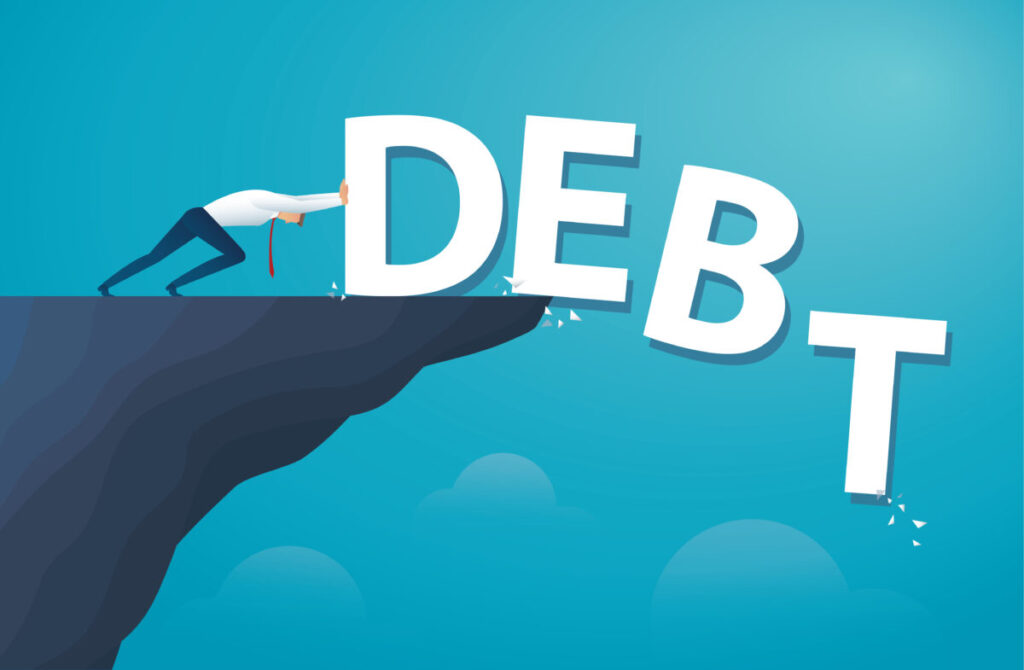Are financial struggles tying you down, leaving you unsure of the next step? The burden of debt can be overwhelming, with student loans, credit card bills, and medical expenses piling up. If you find yourself in this predicament, exploring debt settlement programs in Montville, New-Jersey might be your key to financial relief.
The Need for Debt Settlement Programs
Individuals grappling with substantial debt, ranging from $10,000 to $100,000, often turn to debt settlement programs. These programs cater to a variety of debts, including student loans, overdue rent, energy bills, and credit card balances. When traditional debt settlement agencies decline assistance due to the magnitude of the debt, enrolling in a debt settlement program becomes a viable strategy.
Why Opt for Debt Settlement?
Avoiding the Shadows of Bankruptcy
Considering a debt settlement program offers a strategic alternative to filing for bankruptcy. While bankruptcy leaves a lasting mark on your credit for a decade, debt settlement has a comparatively shorter impact of seven years. This distinction is crucial, especially when facing inquiries on job applications, credit applications, or loan requests.
Preserving Credit Reputation
Unlike bankruptcy, a debt settlement program won’t tarnish your credit profile as severely. The program’s presence on your credit report is less detrimental, disappearing after seven years. This confidentiality shields you from public scrutiny, ensuring your financial history remains private.
Negotiating Debt Repayment
In debt settlement, creditors aren’t deceived; instead, the program is tailored for those unable to meet their financial obligations. This approach serves as a last resort, offering resolution when traditional repayment methods prove unfeasible. The program’s effectiveness lies in providing an avenue for individuals to settle their debts, often paying back a fraction of the original amount.
Accelerated Debt Repayment
Debt settlement programs offer a quicker path to debt resolution compared to alternatives like debt consolidation or Chapter 13 bankruptcy. The potential to clear debts within a year or less provides a tangible advantage, sparing individuals from prolonged financial strain.
Shielding Credit Cards
Contrary to common misconceptions, debt settlement doesn’t automatically strip away your credit card privileges. Unless the settlement agreement explicitly prohibits credit card use, you can still rely on your cards for emergencies. This flexibility sets debt settlement apart from approaches that may restrict or eliminate credit card access.
Streamlined Debt Management
With a debt settlement program, the burden of managing multiple monthly payments dissipates. All debts are consolidated into a single monthly payment, simplifying financial management and reducing the risk of oversight.
Affordable Payments and Interest Rates
One of the notable advantages of debt settlement programs is the potential for more affordable monthly payments and reduced interest rates. This financial relief allows individuals to allocate more resources to essential needs, fostering improved financial stability.
Exploring the Downsides of Debt Settlement
While debt settlement programs offer significant benefits, it’s essential to acknowledge potential drawbacks:
Tax Implications
Forgiven debt through settlement may incur income taxes, depending on individual circumstances. Understanding the tax consequences is crucial for informed decision-making.
Risk of Losing Personal Property
Secured debt settlement loans may put personal assets, such as homes or cars, at risk. Failure to adhere to payment schedules could lead to the forfeiture of collateral.
Hidden Costs
Lower monthly payments and interest rates may come at the expense of an extended repayment term, potentially resulting in higher overall costs in the long run.
Evaluating the Costs of Debt Settlement Companies
Engaging a debt settlement company typically involves an application fee and a percentage of the initial debt amount. While the upfront costs may seem significant, the potential reduction in debt justifies the investment.
The Mechanics Behind Debt Settlement Programs
Debt settlement companies act as intermediaries, negotiating with creditors on behalf of individuals seeking financial relief. The potential for creditors to receive a substantial portion of the owed amount prompts their willingness to engage in settlement discussions.
Making an Informed Choice in Montville, New-Jersey
Before committing to a debt settlement agency, exercise due diligence:
Legal Standing
Check with the Attorney General and local consumer protection agencies for any complaints against the organization.
Thorough Research
Examine the agency’s fees, processing duration, and services. Be cautious of large upfront payments and consider the overall cost.
In-Person Assistance
Prefer agencies that offer face-to-face, internet, or phone services. Personal interaction adds a layer of transparency and trust.
Non-Profit Status
Verify a company’s legitimacy, as non-profit status doesn’t guarantee accessibility, affordability, or ethical practices.
Customer Testimonials
Prioritize agencies with positive customer testimonials, providing insights into the effectiveness and reliability of the debt settlement service.
Embarking on a debt settlement journey is a significant step that demands careful consideration. While the process may impact your credit score temporarily, the long-term benefits, including credit score improvement and potential debt freedom within a year, make it a compelling option for those facing financial challenges. Partnering with a reputable debt settlement agency can provide essential support, turning your fight against debt into a collaborative effort towards financial freedom.
Get A Free Consultation
Want To Share:
Do You Want Help to Resolve Your Debt?
Hi, We are Peachtree Debt Relief. We help people overcome their debt and secure their financial future. The question is, will it be you?

